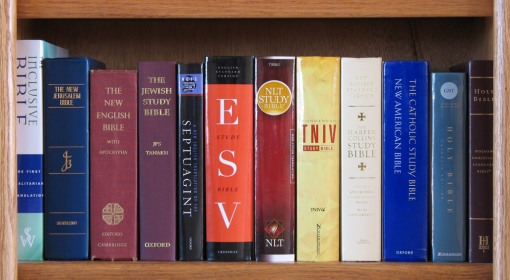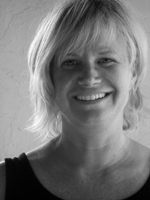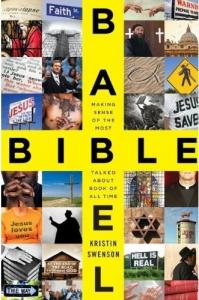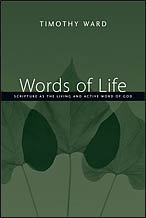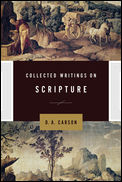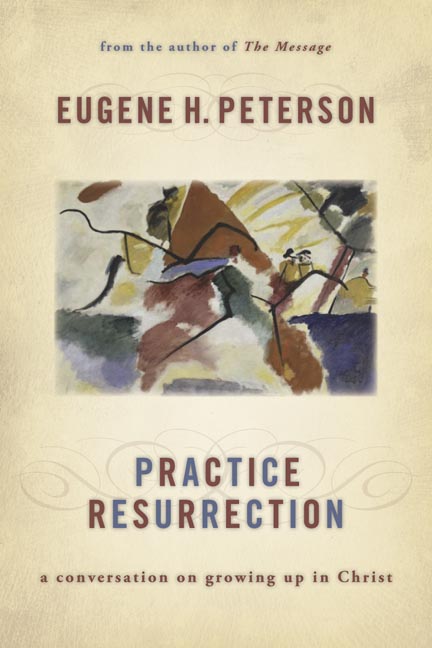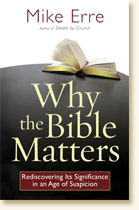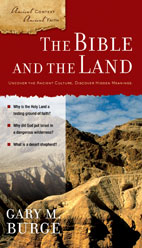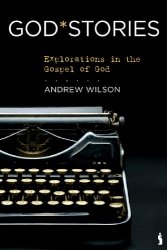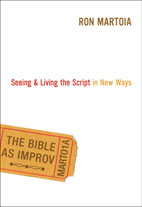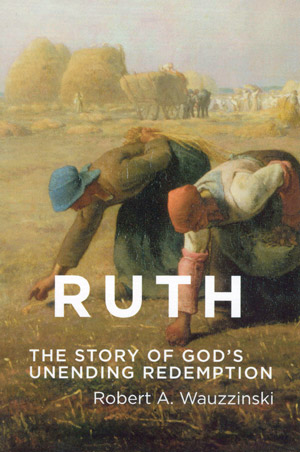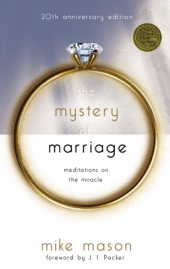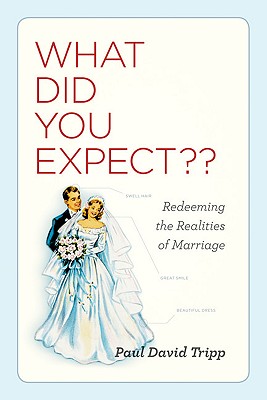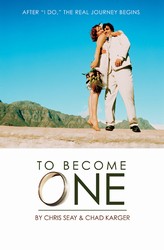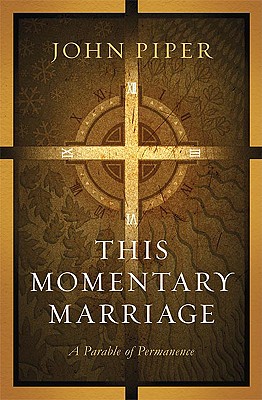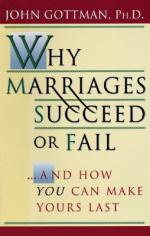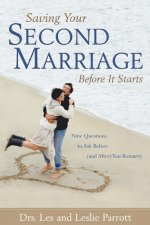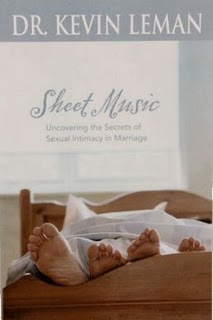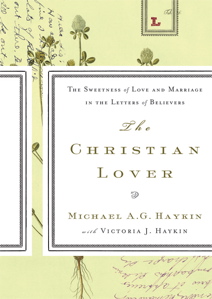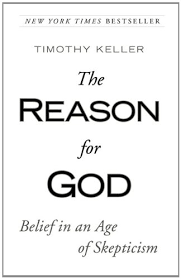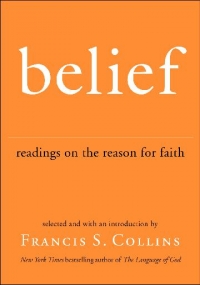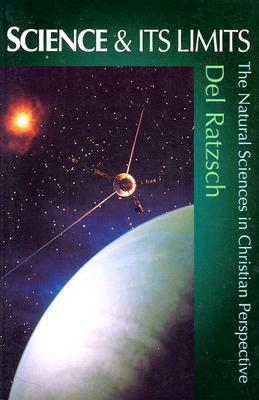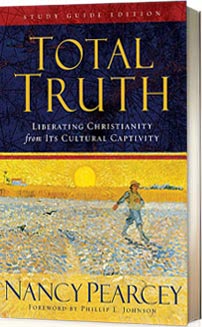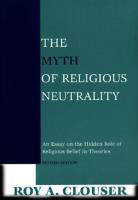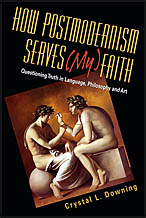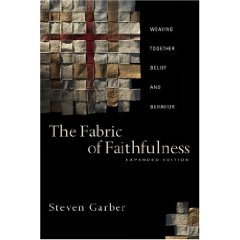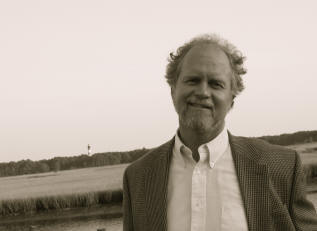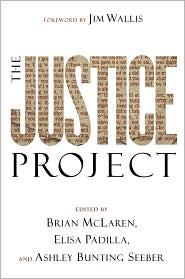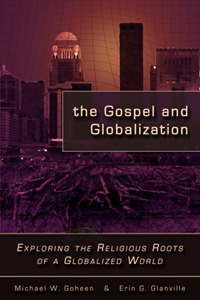BEST BOOKS OF THE YEAR 2009 PART ONE
THE GOLD MEDAL VERY BEST BOOKS OF THE YEAR AWARD
Justice Project Brian McLaren, Elisa Padilla, Ashley Bunting Seeber
(Baker) $21.99 We are grateful that, for reasons too complicated to go into now,
but largely (we presume) because of the graciousness of God who gives revival of
this sort, there is a widespread and vibrant move among younger evangelicals to
live out a gregarious involvement with the world, showing raw love for the
hurting and despised, expressing God’s own care for the hurting. Their
ministries and readings have evoked a realization that simple charity (“can’t we
all just get along?”) is Biblically naïve and an inadequate response to the deep
evils and sorrows of our time. A passion for justice has been brewing, from
Sojourners to International Justice Mission; within charismatic circles
(the Vineyard churches, for instance) to neo-Calvinists in the reformational
movement; from urban Young Life to the new monastics. This book is an example of
this new evangelical concern, and is an exceptionally thoughtful, varied, and
useful resource, the kind of thing that simply wouldn’t have been published a
few years ago. Although activist Shane Claiborne has a beautiful quote on the
back, what he points out is equally important: “These authors are not just the
“usual suspects” of the religious left, but signs of a movement that is coloring
outside the lines of partisan politics and stale debates…they insist that our
faith must be as daring and sassy, as gentle and fascinating, as our lover,
Jesus.”
When I reviewed this earlier in the year, I noted how thorough it was, and
how readable, how interesting. The Justice Project includes dozens
of chapters, showing how justice effects everything from environmental care to
urban poverty, from domestic violence to rural life issues. Importantly, there
are many great Biblical essays, showing how social justice concerns are found in
nearly every aspect of the Bible. A shout out to Sylvia Keesmaat for her piece
on Paul. There is still an old stereotype afoot that social justice, while maybe
found in the Hebrew Torah, or in the screeds of those rowdy prophets, is not
found in the Newer Testament – let alone in Paul. She (and others) deftly show
the truth of the what the Bible really says. Read this and rejoice. Read it and
put it to use. Share it, study it, dance with it. This is a book I’ve been
waiting for my whole life. Praise be to God.
Deep Church: A Third Way Between Emergent and Traditional Jim Belcher
(IVP) $17.00 My deepest roots come from mainline Protestantism, a small town, an
ordinary EUB church, the pietistic denomination that merged with the Methodists
in the mid-60s where I attended regularly from as far back as I have memory.
From my wife’s similarly regular Lutheran years, and our mutual admiration of
Anabaptist relatives, I think we can say we have a strong ecclesiology. That is,
we think church is important; not just the regal Biblical idea of church, but
the real, often rather boring, infuriating, slow-to-change, institution made up
of oddball folks, the real thing down your street and mine. It is a work, a work
of grace, but you can learn stuff there, and become a person shaped by the good
news. As much as we’ve majored in reviewing books about faith-based cultural
reform, social outreach, thinking faithfully about vocations outside the walls
of the institutional church, drawing on the gospel of the Kingdom (not just
personal salvation or parish life) we have always said–and I’ve highlighted
books here–that involvement in a real congregation is vital for earnest
Christian growth. Much of the action of God is outside the walls of the church,
but that is no excuse for apathy towards the health of the congregation. Still,
we know that there is much to talk about, especially as many younger disciples
of Jesus seem to be branching up and off into fellowships or gatherings not
connected to a real, local parish.
And so, I’ve been very interested in what many now call the “emergent
conversation” of the last decade – this tribe of often disillusioned evangelical
church folk who have entered the blogosphere, the conference and retreat world –
and developed a publishing program raising big questions about the nature of
faith, the meaning of church, the relationship of Christ, church, and
Christendom, and what it means to be followers of Jesus in this 21st
Century liquid, consumerist, culture. The emergent folk are good at questioning
the narrow piety of many of our most religious leaders, the oddly insular
practices of congregational life and the subsequent cultural irrelevancy, the
harsh legalism, the corporate sort of trendiness that ends up with big programs
and big screens and big commitments to the idols of efficiency and marketing and
growth. (Yes, some of the tatooed leaders of the emergent movement used to be
youth pastors at the evangelical mega-churches and just burned out on all that
cookie-cutter quasi success.) That quintessentially postmodern
conversation–controversial and wrong-headed as it may sometimes be–is a
conversation worth having. I explained our interests in it here, but it has
generated a cottage industry of loud writers writing off anyone visiting the
emergent village. Some critics have been wiser than others, and some have been
kinder than others, and some have merely caricatured the emergent positions,
such as they are. I can count on very few fingers the number of authors in the
“critical” camp who have gotten their concerns about the emergent movement
right. Jim Belcher, in Deep Church, has.
Deep Church is at once a
call to a serious ecclesiology – that is, it reflects wisely about the church
and her importance – and it is a very serious and altogether pleasant debate
with some of the leaders of the emergent camp (Brian McLaren, Tony Jones, Doug
Pagitt, etc.) I am not sure Belcher fully develops everything that needs to be
developed – as a working pastor he’d say he has not, as in many ways this is a
study in process which he’s been working on in the trenches of church planting
and ministry. But Jim here does something no less audacious than promoting a new
alternative way of thinking about and being church, a third way “beyond” the new
voices of the emergent village, and the critics of those voices. He’s a “third
way” between standard, conservative, and historically orthodox evangelical faith
and its usual forms, and the rather edgy, pomo wild guys at the margins of new
kinds of Christianity. For those who have followed this, he is neither D.A.
Carson and Mark Driscoll, nor Tony Jones and Phyllis Tickle. And he’s not a
happy medium, either.
I will review Belcher’s amazing book in a bit better detail soon because it
really deserves to be described in greater fullness, but I want to hold it up as
one of the most important books to be published in recent years. It is a must
for anyone interested in this emergent movement, and although he isn’t
particularly addressing mainline folks, it is excellent for anyone interested in
congregational life, evangelical or otherwise.
It is a book that models religious debate in healthy and kind and fair ways
(that alone makes it exemplary) and a book that talks about congregational
renewal (worship, preaching, community, education, outreach, and such) in ways
that strike many as fresh, yet solid, creative, yet enduring, risky and
adventurous, but not the least bit gimmicky. If anything, it may be said that
this isn’t all that new: he wants serious liturgy and historic orthodoxy,
caring outreach and real-life community, a rejection of standard dualisms,
nothing thin or easy or hip. I suppose I’ll put my cards on the table with this
one: a hero and favorite author of mine, Richard Mouw, President of Fuller
Theological Seminary, raves about Belcher’s unique approach in an appreciative
foreward and Jim himself has been a FaceBook friend and customer of ours for
quite some time. His vision is largely shaped by a mentor of his, Reverend Tim
Keller, whose fairly conservative theology, and fairly traditional worship,
construed and embodied in fairly creative ways in mid-town Manhattan, has become
one of the shining examples of evangelical cultural renewal in the hard Gotham
city. Thick? Missional? Engaged with the emergent, but critical of it? Deep?
Provacative? Yes, yes, yes and yes.
This is a must-read for those wanting to get up to speed on the state of the
art of down-to-earth but excellent theological discourse, or those who want to
dream new dreams about a faithful and relevant church, a mature worshipping
community that equips folks to nurture the Christian mind, a Godly care for
culture, and an involvement in the coming Kingdom of God. We are happy to name
it one of our “books of the year.”
Bearing the Mystery: Twenty Years of Image Greg Wolfe, editor
(Eerdmans) $30.00 This is a well made, heavy hardback, a book worth owning,
using often, dipping into for comfort and enjoyment, stimulation and (in the
best sense) inspiration. Wolfe has been at the helm of one of the most important
quiet voices of Christian renewal in recent decades, the ecumenical, exceedingly
classy, arts/literary journal, Image. Image has published some of
the finest writers, poets, essayists and wordsmiths of our time, from Annie
Dillard to Kathleen Norris to Denise Levertov to Wendell Berry. Further, they’ve
nurtured a friendly community of artists and patrons, publishing (and sometimes
gathering together) those in the matrix of this recent interest in faith, art,
literature and cultural renewal. Filmmakers and painters, poets and memoirists
and the occasional theologian or rock star have found their way into the
columns, interviews and articles of this fine, fine quarterly journal.
Bearing…is a published celebration – I only mean to quip cleverly
when I say it is like a greatest hits – and it is an honor to realize it was
God’s doing, this uprising of a faithful few, carried forward by sheer
determination, small donations, and the passions that have always propelled
artists to do their creative thing. I do not just rave about this book because
it honors the anniversary of Image; it really, really is a treasure trove
of great insight and deep enjoyment. Here you’ll find Patricia Hampl, Scott
Cairns, Clyde Edgerton, Mako Fujimura, Ron Hansen, Luci Shaw, Ann Patchett and
so many others. For a few of us, the Mark Heard journal entry is nearly worth
the price of the book. Others will cherish a piece by Larry Woiwode. A few, I’m
sure, will be touched by Julia Kasdorf’s piece, “Across from Jay’s Book Stall in
Pittsburgh.” And many of us should have at least one full color example of the
large art of Ed Knippers, a watercolor portrait by Catherine Prescott, a woodcut
by Barry Moser. We here at Hearts & Minds, I suppose I should confess, are
not terribly high-brow and we live and work in a pretty common-place small town
so we are not gushing about this because we live in some urbane culture of grand
literature. I do not say this lightly, but I do want to say it loudly: for
anybody who cares about good writing, this is one of the best books we’ve seen
in years, as it is laden with such deep joy and meaning, and it stands for so
much more. Congratulations to the stout crew that keeps this labor of love
alive.
GOTTA LOVE IT: OUR OWN FAVORITE BOOKS OF THE YEAR
These may or may not deserve to be in the very “best” category, but we sure
did love them. These are our favorites, those that brought us the most solid
pleasure. Maybe that really does make ’em the best. Thanks to these writers for
a job well done, for a labor that has blessed us personally.
Coop: A Year in Pigs, Poultry and Parenting Michael Perry (HarperOne)
It seems to me that these should just fly off the shelves. Maybe I don’t know
how to explain this guy, whom I’ve described as a “blue collar Garrison
Keillor.” I mean no disrespect to the rural Lutheran, but Perry has real dirt
under his fingernails (and who knows what else; he’s been working with pigs and
changing diapers if you get my drift.) Beth and I both will read anything Perry
writes, and have loved Population 485, Truck, Off Main Street
and now this: a crowning achievement of fun, foibles, small town,
hard-workin’ life, told with exquisite prose that just doesn’t quit. He is
clever and deep and wise and good. I’ve read a lot of good books these past
years, and this really is an all-time favorite. You will be touched, I’m sure,
and duly impressed by his truly amazing wordsmithing, his carpentry skills (or
at least his darn-good effort), his realization that he is often a dolt (ask his
wife) and his solid alt-country musical tastes. Put on some Steve Earle and
spread the word.
Million Miles in a Thousand Years Donald Miller (Nelson) $19.99 Okay,
I’m a tad nervous saying this, as Donald Miller has a huge following, mostly
among younger evangelicals who (sorry for the hunch here) haven’t read tons of
memoir, and wouldn’t know Patrica Hample from Mary Karr from Seven Story
Mountain. Maybe that book with the cardboard box on the guy’s head and maybe
the on-line rants of Jon Stewart. Okay, enough of that. I’m sorry. I just
sometimes wonder when a 19 year old fundamentalist swears by a book that changed
her life–think Blue Like Jazz or Crazy Love–that they just may not
get out into the literary world much. Still, this is a good thing: that fun and
interesting writers capture the attention of those not used to serious prose.
I’m happy that folks really rave about writers they like.
I say all that to sound a little snarky and keep you high-brow folks with
me—yes, yes, we can mock the popular and hip quite easily, can’t we? But
listen here: Miller is a really good writer, he is a good thinker and it seems
to me that he’s worked really hard to find his voice (as they say) and although
he’s plenty pissed off at ordinary conservative evangelicalism, he is
theologically altogether reliable. This is just one heck of a fun and funny
book, well written, entertaining, interesting, and–yep–right. We do have
to make meaning of our lives and our lives do unfold very much like a movie
plot. This narrative about narrative – they were making a movie about his life,
which got him thinking he ought to improve his life a bit, which he does by
studying film-making, and trying to get the real Don as interesting as the movie
Don – is really clever. You have to grant me that. Maybe this is the best new
idea for a book in 25 years! (Name a better idea, can ya?) And he mostly pulls
it off. Yep, this long-awaited Donald Miller was one of our favorite books of
the year. And not just us, but it has a sweet ol blurb right on the front from
Anne Lamotte. Told ya. This is really good stuff. Maybe he’ll be nominated
someday for the best book inspired by a movie, or the movie by the book, or
whatever. In the meantime, he gets this little shout out from Hearts &
Minds. Best of ’09.
Plenty: Eating Locally on the 100 Mile Diet Alisa Smith & J. B.
Mackinnon (Three Rivers Press) $13.95 I know that it is rather trendy to be
writing about sustainable agriculture, being a foodie and localism and such. We
love Barbara Kingsolver (can’t wait to read her brand new novel) but (I hate to
admit) the popular zietgist-weathervane Animal Vegetable Miracle grew a
bit old on me. We’re glad everybody read The Omnivore’s Dilemma last
year, and we gloried in it as well, but it, too, didn’t make me laugh or cry.
This, though – the feisty story of two young lovers (with nothin’ better to do,
as Steve Miller put it) who decide to only eat food that was grown within a 100
mile radius of their British Columbia home – really was a hoot. What a memoir!
They shop, they grow stuff, they forage, they fight, they learn to cook. You
know the worst scenes in Julie and Julia? This is worse than that. And,
more important. This is a haunting study of an ecological footprint and a
pointer towards what it may mean to be more responsible stewards of God’s good
earth. Couldn’t put it down, a signal not only of how important it was, but how
much I truly enjoyed it, how well it was written, and how I grew to care about
this difficult journey and this difficult relationship. The hardback edition was
entitled Plenty: One Man, One Woman, and a Raucous Year of Eating Locally.
The Devil Reads Derrida: And Other Essays on the University,
the Church, Politics and the Arts James K.A. Smith (Eerdmans) $18.00 I
love non-fiction books, and will name plenty, thinking up goofy awards just to
be able to honor so many I truly appreciated. This really was one of my
favorites, in part because of a few key essays (Teaching Calvinists to
Dance, for instance, or the brilliant Architecture of Altruism: On Loving
Our Neighborhoods.) These are short pieces by one of the most important–and
increasingly known–young scholars of recent years, a Calvin College philosophy
prof who is as fluent in Flaubert, Foucault, Little Miss Sunshine and
Harry Potter. He is as passionate about liturgical renewal as he is about
uniquely Christian political activism, and seriously informed about both. (His
piece on why Jim Wallis isn’t particularly helpful, is very much worth reading,
overstated as it may be.) This is a clever, smart, insightful, Biblically-laden,
collection of interesting essays, and is to be especially commended for being a
fine example of how serious scholarship can serve the church, how Christian
critical thinking can be done in such a manner as to help ordinary people.
Short, thoughtful, pieces, personal testimony, sermons, movie and book reviews:
philosopher as public intellectual, serving the rest of us. A great collection.
I only wish there were more. Maybe this award will inspire another such
collection.
A Good Neighbor: Benedict’s Guide to Community Robert Benson
(Paraclete) $14.99 This slim volume, like other Benson books, illustrates his
humble style, his somewhat wry humor, his economy of words. I don’t quite know
why I am so enamored by his spare style, his (almost) no-nonsense story telling,
but time in Benson’s pages always creates a truly sweet reading experience.
Here, he gives sound advice on forming community, on being present to those whom
God has given you, and those God gives you to. That is, neighbors, church
friends, associates, colleagues, friends and family, here and far. This is a
sane way to be aware of the deeper relational connections that are possible, and
their pains and sorrows, graces and responsibilities. This book provides a
lovely way to learn a bit about Saint Benedict’s advice for monks, too, –
applied to contemporary life in the not so fast lane. Lovely. His wonderful
handsized hardback book The Echo Within on vocation isn’t a 2009 book,
but I read it in 2009. It, too, is a lovely, delightful, wise and great read. I
cherished holding that little hardback, and it reminded me of how good a writer
he is, without being overly zealous for the fancy touch. Highly recommended. I
award him bounteous Benedictine blessing.
TELL THE STORY, TELL THE TRUTH: BEST MEMOIR
Well, I’ve awarded Coop (Perry) Million Miles in a
Thousand Years (Miller) and Plenty (Smith & Macinnon)…
excellent choices, all, favorite books in this favorite genre. Three others get
special mention, though.
Lit Mary Karr (Harper) Some say that her 1990s hard-scrabble West
Texas dysfunctional girlhood memoirs, Liars Club and Cherry,
catapulted us into the era of memoir. Her wit and amazing craft of cadence and
word choice make her truly one of the most celebrated writers in decades. And
her weird, hard, white trash, alcoholic little shop of horrors of a family sure
gave her grist for the story. This third installment has been long, long
awaited, and nearly every page provides stunning examples of her excellent,
transparent writing. This self-effacing story is vulgar and tender, real and
amazing, beautiful and smart. Her marriage to an exceptionally wealthy New
England old money, Harvard gent, now a scrambling poet himself, sets up
contrasts that just had to be written about; her journey to (as she indelicately
calls it) “the looney bin” is power-house stuff, as is her poetry writing amidst
her recovery. Somewhat like Anne Lamott or Anne Rice – other boehmian and
celebrated authors who have come to be found by the Christian faith – Karr has
converted to Catholicism. This is not a major part of the book, but no matter.
This is a deeply religious cry of the heart, a wild and witty telling of tragedy
and redemption, poetry in fast forward motion. Wow.
Girl in an Orange Dress: Searching for a Father Who Does Not Fail
Margot Starbuck (IVP) $16.00 I so enjoyed this story of a college-age
evangelical off to change the world who comes slowly up against her longing to
meet her birth-father (even while her adopted family starts falling apart at the
seams.) Starbuck, who is one great character – a woman my wife and I would love
to meet someday, ends up at Princeton Seminary and becomes an ordained
Presbyterian minister with a serious case of depression, some painful physical
disabilities, a jones for stalking the dad who rejected her, and a hole in her
heart that would make Augustine’s restlessness seem tidy. We so, so appreciated
the good writing, and so respect the author for telling her story that it just
had to be listed as a year’s best. This is classic memoir, interesting, funny,
riveting, at times heart-breaking; a story that is particular (of course) and
yet in some ways, somehow, universal. Who isn’t trying to find a God who loves
us? Who doesn’t need to work through insecurities and foibles? Who doesn’t have,
or know someone who has, serious medical and psychological issues? Who doesn’t
like a good laugh in the face of severe setbacks? (Or, a punked out fashion
sense in the face of middle-class sobriety, another fun part of the book!) I
think this is not only an enjoyable read, not only a well-written story, but it
is a life-saver for some. Just the right touch: not too heavy, not too dark, but
truthful. Girl in an Orange Dress deserves special accolades. One
of the year’s best books, to be sure.
OUR MOST AUDACIOUS CLAIM: THE MOST IMPORTANT BOOK OF THE YEAR
I want to honor a book that is truly a major new contribution, breaking
ground that perhaps has yet to be explored, offering genuine insight in a new
manner, insight that is vital and important. Drum roll, please…and it is a tie. Ohhh, the suspense. This is huge.
Desiring the Kingdom: Worship, Worldview, and Cultural Formation
James K.A. Smith (BakerAcademic) $21.99 I will be the first to admit that this
book may not be for everyone. It is slow going at times, although for those who
wade through gruelingly written, exceptionally tedious, academic texts, this
will be a happy breath of fresh air. Who knew a scholarly work of serious
theology, philosophy, and cultural criticism could be so interesting and
well-polished? Who knew you could expound on Dooyeweerd, Derrida, U2 or the Coen
brothers all in one book on spiritual formation, worship and adult education?
Here, Professor Smith offers his first volume of a two volume magnum opus: he
asks how the liturgies we ritually embody – at the mall, say – shape us, shape
who we are, how we see life, indeed, what we become, and what we most love.
Deeply Augustinian, this is an exploration of our deepest loves and desires that
are created and nurtured more by cultural liturgies than by our regular church
worship. It explores how Christian affections and subsequent ways of life must
be shaped by radical (deep?) worship more powerfully formative than the secular
rituals of sports and nation state and commerce and entertainment. This is truly
a major, major contribution. Anyone interested in worship, shaping lives for the
reign of God, Christian education, or what we sometimes call “worldview studies”
would be wise to spend time pondering (and hopefully discussing) this vital
work. Part two will come next year, and will be extraordinary, I am sure. Read
this volume now, and join the conversation. It is very, very important. It is
one of the most important books of the year.
Shop Class as Soulcraft: An Inquiry Into the Value of Work Matthew
Crawford (The Penguin Press) $25.95 You may have heard of this,
seen my review of it earlier, or seen it on other astute lists, where it has
gotten some very nice accolades. It really has gotten very good reviews, in some
prestigious circles, but not nearly enough as it deserves. This is an amazingly
important work, nearly perfect (except for a few spots it bogs down just a bit,
and perhaps the concern that it is a bit too academic for the audience that
needs it most, despite the author’s quirky humor.) This is a memoir and study
that evaluates the ways in which our information revolution has seduced us into
thinking that we don’t need real work, real craft, blue-collar labor or those
who work with their hands. We’ve devalued shop class – in many cases, schools
have eliminated them – and the working trades, in favor of abstract and arcane
academia or computer skills for the alleged virtual world. Crawford tells the
story well of his own journey into PhD-dom, his work in a think tank, and the
sense of intellectual and vocational emptiness (and worse, a compromise of
ethics) garnered from his work pushing papers. A beautifully written and deeply
thoughtful story ensues, in which he tells of his new found energy and joy from
starting a motorcycle repair shop, a now renowned little business in Roanoke VA.
Around this memoir is a wonderfully realized, extended essay on the dignity
of work and the meaning of education, and why it is we privilege certain ways of
knowing (purely abstract, or rationalistic) at the expense of more humane,
multi-dimensional, or tacit ways of knowing. (If you think of Michael Polanyi
here, you get an award yourself!)
We love this Shop Class book, serious and profound as it is,
and think it is exceptionally important, raising matters that we simply must
attend to, soon. Without confessing the Christian faith, the author raises
significant, religious-like questions about what we know, how we know, the role
of our hearts and minds and hands, and how our embodied work – like fixing
things – has not only great social significance, but can be a source of glad joy
and lasting meaning. Literate, captivating, intelligent, and (yes) about
motorcycles. If this doesn’t deserve an award, nothing does! Way to go,
blue-collar soul-man.
BEST CONTRIBUTION TO THEOLOGY
Justification: God’s Plan and Paul’s Vision N.T. Wright (IVP) $25.00
I am sure there are more weighty volumes that have been released this year, and
some are truly noteworthy. We’ve got piles of ’em all over that room of the
store, heavy tomes like spiritual bricks, stacked. Some, I know, have taken
years to write, and deserve serious accolades. I am sure some in the academy or
theological guilds will honor those, even those that are a bit arcane. This,
though, is a book that we believe merits extra attention because it illustrates
great, creative, Biblically-shaped theological study, done for the educated
layperson. This is smart and informed, but not stuffy. It is deep, but not
arcane. It is passionately polemical, but not grating (although he expresses his
frustration with his critics in rare moments of ire.) This is theology meant to
be studied together, and it is a major contribution from a person (agree with
him fully or not) who is one of the most important Biblical scholars writing
today. This book deserves all the acclaim it has gotten, and it has gotten much.
Wright deserves very little of the criticism he has gotten for that matter, as
this book shows.
The first half of Justification is mostly a response to his
critics (most directly, the fascinating, infuriating, and important little book
by passionate pastor John Piper, that I applauded with great qualifications here
two years ago.) The second half illustrates Wright’s understanding of the
Biblical Kingdom vision and of what justification is, in light of the centrality
of Jesus’ victory. He builds his case carefully and thoroughly, explicating how
justification is to be understood in every major discussion of it in the New
Testament, mostly Romans and Galatians. I ought not over-promote this – I was
going to say it was nearly magisterial – as it is only 250 pages, and is very
readable for ordinary people wanting a solid study of a central question of our
faith. Thank goodness for books like this! We are happy to call it the most
important theological contribution of the year.
God in Dispute: “Conversations” Among Great Christian Thinkers Roger
Olson (Baker Academic) $24.99 Yes, this is a hoot of a book, creative and maybe
a bit crazy, offering imagined conversations between historic figures. And, yes,
it is exceptionally rigorous as an educational text. In other words, while he
constructed these complex and serious pretend conversations, he ain’t makin’
this stuff up! It is a creative overview of the history of Christian thought,
from the Early Church through the 21st Century. In each chapter he
pairs two or more conversation partners and offers scripts as they debate the
issues they were most known for.(Think, perhaps, of the work of Peter Kreeft, on
theological steroids.) Olson is a prolific church historian and theologian and
is well qualified to “get into the minds” of these thinkers, representing them
fairly. There are 29 long conversations, so there is plenty of detail and it
covers acres of ground. He does not playfully pair folks from widely different
eras (no, we don’t have Polycarp talking with Barth) but reasonably plausible
debates: Augustine and Pelagius; Bucer interviewing a host of Reformation era
leaders (nicely including Grebel and Servetus alongside the usual suspects of
Calvin, Luther, and the boys.) There is a bit of humor here on occasion such as
when he sets up one chapter as “Medieval Scholastic Philosopher-Theologian
Thomas Aquinas and Tree-Hugger Francis of Assisi Enthuse on How to Know God.”
Some are very pressing, such as the one called “Theologians Liberal
Rauschenbusch and Conservative Machen Argue About True Christianity, the Bible,
Evolution and Doctrine” or one on liberation theology joining Rosemary Ruethuer,
James Cone & Gustavo Gutiérrez. The last, on emergent/post-modern theology
is too brief, and no names are listed, presumably so as not to appear to be
putting words in the mouths of real, working scholars.
Okay, this is perfect for any geeky theology nerds, or, to be honest, anybody
willing to work through some of the greatest debates with the greatest minds of
Western history. Hold on, dig in, have fun. This is a theology text that
deserves some kind of award! I wonder who he’ll invite up to the stage to
receive it, and what words he’d put in their mouths? Accepting this award on
behalf of the author will be John Chrysostom, John Calvin, and Dietrich
Bonhoeffer. Whewie!
AWARDING BOOKS ABOUT THE CHURCH
Deep Church: A Third Way Beyond Emerging and
Traditional Jim Belcher (IVP) $17.00 Already named this as one of the
best books of the year, so you can read my remarks, above…
This Odd and Wondrous Calling: The Public and Private Lives of Two Ministers
Eerdmans) $16.00 I almost put this in the “favorite books” category, but
hesitated as I wanted it listed here. I really did love this book; I found
myself wiping tears that were running down my cheek on more than one occasion.
This is by two fine UCC pastors, excellent church leaders in the mainline
Protestant world, and very gifted writers. (A few of the chapters were excerpted
in The Christian Century.) Here, they describe in intimate detail, the
ordinary lives of pastors. If you are a clergy person, you will love this. If
you know pastors well, you’ll get it. If you want to understand what ministers
go through–their inner lives, their joys and frustrations, the strains on their
marriages, their fears and foibles–this is a must-read. Lauren Winner, an
excellent storyteller, theologian and writer herself, declared this: “My
dictionary doesn’t have enough enthusiastic adjectives for this book, which I
adore…Everyone who loves the church or struggles with the church or is just
plain curious about the church will relish every page.” I read much of this book
before I got an edition that had Ms Winner’s blurb on the back. I knew I
“adored” it and I indeed was “relishing” nearly every page; Beth heard me read
some of it out loud, as we passed the Century articles to each other,
anxious to see the full book. I am glad Winner put into words my heart-felt
affirmation; I adore this book.
Why We Love the Church: In Praise of Institutions and Organized
Religion Kevin DeYoung & Ted Kluck (Moody) $14.99 I wasn’t sure if I
should list this, as I disagreed with a few things, and found their critique of
a few friends to be a bit overstated. Maybe I will review this more carefully
later, showing how they didn’t fully get every nuance right; they maybe made a
few straw men to be too easily knocked down as they fret about those who use
missional language to avoid the ordinary details of congregational life. But,
still–still!–this was a book I couldn’t put down, that I wanted to keep reading,
that I wish I could sell more of, that I want others to consider. It is
important and fun and vital, and there is hardly anything like it. In a year
when a handful of books came out documenting why people – even deeply religious,
Christian disciples – are leaving church, and some publishers are not only
documenting, but affirming the departure, somebody had to say this trend is
wacky or worse. Why We Love the Church is a Biblically centered
discussion of why we really need to stay involved in churches, and how to keep
churches focussed on the right stuff. When dry old J.I. Packer writes “As I
read, I wanted to stand up and cheer” you know you’ve got a winner. (Okay, sorry
about that; Packer has become quite a lively writer himself since his early days
densely commenting on his beloved John Owens.) These two young men have written
other fun stuff (including Ted’s recent The Reason for Sports) but this
is by far their best. They love Christ and they love His church. Let’s hear it
for these guys! Whoot.
Worship Words: Discipling Language for Faithful Ministry Debra
Rienstra and Ron Rienstra (Baker Academic) $19.99 This may be considered an
academic book, as the “engaging worship” series co-sponsored by the Calvin
Center for Christian Worship is, but I think nearly anyone interested in richer,
more faithful, and more fruitful worship ought to study this remarkable text.
The authors carefully examine the role and use of language in our praying,
singing, preaching, and in the other worship practices in the church.
WW is very personal (with lots of stories) and practical, even
though it is rooted in very serious scholarship and research. When I reviewed it
a month or so ago, I noted that Marva Dawn raved about it, as does Sally
Morgenthaler and Thomas Long—important voices to whom we should listen when
they commend something so firmly. An “extraordinarily rich treasure,” Marva
insists. Dawn continues, “Because of the unusual combination of their brilliant
literary, musical, and theological gifts, the Rienstras offer phenomenal
contributions to all of us…” Wishing to explore, learn or re-learn the grammar
of worship? This is the most useful resource we’ve seen, truly an award winning
effort! Praise the Lord!
The Pastor as Minor Poet: Texts and Subtexts in the Ministerial Life
M. Craig Barnes (Eerdmans) $18.00 Barnes is a good pastor, he has been
through some hard times, he is a rich thinker and a practiced writer.
Importantly, he’s a working pastor. This is his best, a soaring and beautiful
study of pastoring, using the metaphor of being a poet. Walter Brueggemann has
explored this richly, and he writes, “Barnes knows all about being a pastor, how
to use authority, how to lead, how to listen, how to provoke. He knows,
moreover, that it finally all comes down to faithful words that can conjure
alternative scenarios of the future. In a society cold with technical reason,
this summons to poetic truth is of huge importance.” We couldn’t agree more.
Rave on.
A HEARTS & MINDS EXCLUSIVE AWARD: WORLDVIEW STUDIES
You may know that we do what we do here at Hearts & Minds mostly because
in the 70s we committed to studying this notion of worldview, and how the
Christian faith becomes a lens for all we see. Worldviews shape how we construe,
how we make meaning of life, and therefore how we relate our deepest convictions
to our perceptions and evaluations of daily life, how we “lean into life” as
James Sire famously put it. That is, the Christian faith becomes a vision, a
transforming vision, or, as some now say, a story in which we play a part. Every
so often, books that talk about this deserve special acclaim. I don’t know how
many other stores have a section of “worldview studies” or a special award for
them. We sure do, it,s how we see life: worldviewishly. So here’s a worldview
award for books on worldview.
After Worldview Edited by Matthew Bonzo and Michael Stevens (Dordt
College Press) $13.00 Several years ago, some of the most prolific and important
authors who have used this method of discourse, who have entered this particular
conversation, who have studied and taught, and written on worldview formation,
gathered to ask if in the postmodern 21st Century, we still need this
bit of rhetoric, or even this very idea. They struggled with many questions, but
one was this: If we are hoping by using this concept of worldview to make a
distinctively Christian mark on the world, by learning to discerningly “think”
Christianly, then we must ask if the very notion of worldview – which some argue
is more rooted in a Continental philosophy than a Hebrew way of thinking – is
the way to do that. Does a Christian worldview really have a need for this
notion of worldview? That is, is the very word and its idea freighted with too
much non-Christian ideology that trails along, deforming our Christian way of
life in the world? (The irony was not lost that it was largely the worldview
thinkers of the Dutch neo-Calvinist reformational movement that taught them to
ask this very question, to explore in this very way the deep philosophical
presuppositions of an idea. Dooyeweerd and, more popularly, Francis Schaeffer,
preceded the deconstructionists on this by a decade or so.) And, the question is
also one that happens to be thick these days: does worldview imply only getting
“ideas” correct, thereby missing the transforming way of life that the Bible
calls for? There are many chapters here, pieces from James Sire and David Naugle
and Al Wolters and Calvin Seerveld. Trinity Christian College philosophy
professor George Pierson, an old college friend from our early CCO days in
Western Pennsylvania, gives a lecture on evangelical confusion on these things,
stuff he was astute enough to be saying back in the day, stuff that was
formative for me, and still important for our work here. What a great bunch of
serious and critical studies about worldview. Does something come after
worldview?
I don’t know how much others appreciate this fine-tuned debate, or if they
will resonate with James Olthius, who playfully and poetically talks about the
wild ways of love as we seek to be faithful in our Kingdom service, riffing on
words and holding forth on various ways to both appreciate and deconstruct the
language of worldview. I know that anytime Cal Seerveld or Al Wolters or Davey
Naugle show up, it is worth reading.
I also know one of these chapters was dedicated to a late mentor of mine, Dr.
Peter J. Steen, who first taught me the word weltanschauung. That alone
would be enough reason to celebrate this fine book. I think this is
exceptionally important stuff. I invite you to join the discussion.
The Universe Next Door: A Basic Worldview Catalog (fifth
edition) James W. Sire (IVP) $22.00 James Sire, as some readers surely
know, has been a significant voice in carrying on this conversation about not
just “world religions” but world-and-life-views, and how these ways of thinking
show up in philosophy books, literature, movies, and in daily conversations, not
just in comparative religion debates. He has been a cultural apologist,
defending Christian truth with grace and thoughtfulness for much of his life,
writing splendid books about the life of the mind, and why Christians should
think clearly about all of life under God’s reign. In his many books, Sire has
often reminded us of the deeper constellations of ideas and assumptions that
shape our visions of the meaning of life— and why we must be aware of these
faith-like, life-perspectives. This book has been updated several times in the
last twenty years, which has always been helpful, but never terribly urgent (in
my view.) He’s added a chapter or two in each new edition and the book remained
a chestnut in this field, a standard.
Since being a part of the on-going conversations around the deeper question
about refining the meaning of worldview (see the Bonzo/Stevens book, above) Sire
has concluded that he had not really thought through all the implications of his
rather rationalistic cataloguing of different worldviews. He had become known as
a worldview guru, but he later admitted he had not adequately considered the
very meaning of the word (and he found seminal for his own renewed thinking, the
heavy David Naugle book, Worldview: The History of an Idea.) Sire
bravely documented this journey, and presented his deeper, more profound, and
more happily allusive approach to what worldviews are, and why they matter, in
the great little 2004 book, Naming the Elephant: Worldview as a
Concept. This past Fall a new edition of Universe Next Door
was released and it is the first time that it has not only been
expanded, but has been significantly reworked. Sire has introduced his new
understandings of worldview into each chapter, and while he continues to explore
theism, Marxism, rationalism, naturalism, pantheism, new age mysticism and such,
he has an excellent new chapter on Islam as a worldview. This is still subtitled
a “basic worldview catalog”, but this Fifth Edition is amazingly richer than
anything that has come before, not only with Sire’s new insights, but with
sidebars, helpful pull out quotes, and the ever-present great footnotes. My hat
is off, as always, to Dr. Sire, but he is surely to be awarded honors for the
hard work of rethinking things, and redoing things, making a classic so very
much better. Here’s the award I’ve been waiting to give, to the fully re-done
Fifth Edition!
Hidden Worldviews: Eight Cultural Stories That Shape Our Lives Steve
Wilkins & Mark Sanford (IVP) $22.00 I am sometimes suspect of those who jump
too quickly to name the various ideologies and worldviews that are behind this
or that cultural artifact. As Andy Crouch has described in last years fabulous
and justly famous Culture Making, we sometimes develop a posture, a habit
of cultural engagement, that is unduly negative and chintzy. We just sniff out
this or that idea, this or that false philosophy, and off we go, not really
understanding or maturely discerning profound matters, we just point and judge,
blasting away with this habit of cheaply naming and quickly criticizing. So I
was nervous about this, wondering if it just was another example of the
hyper-critical posture of judging anything we don’t think is religious enough
for our pious tastes. I can see why I thought that, and I am glad to say I as
wrong.
This is a wise and thoughtful book, engaging the deepest level assumptions
and values of the American way of life. Some of the critique sounds a bit as if
it might come from the left of center–from Sojourners or Bob Goudzedwaard
say; other critiques and analysis could have been found in First Things
or the deep end of the conservative think tanks. Which is to say,
Hidden Worldviews is not exactly predictable, it is not driven by
sharp ideology, and it isn’t just a screed trying to get Christians engaged in
more culture warring. These discerning authors accomplished what they set out to
do. Their project was to decipher the meaning of the story of the American way
of life, to uncover and evaluate the philosophical (religious?) assumptions of
that driving drama. It explores, for instance, how implicit beliefs shape what
we hear in the evening news or what is implied between the lines in college
textbooks. I may not say it just like they did on every page, and I had some
underlined portions I wanted to reconsider. Which is also to say this is a darn
good piece of work. We’re happy to do more than commend it, we want to promote
it with this little not-so-hidden Hearts & Minds award.
A REALLY GOOD NEWS AWARD: BEST BOOKS ABOUT EVANGELISM
Learning Evangelism From Jesus Jerram Barrs
(Crossway) $17.99 I love reading books about evangelism, and there are so many
good ones. Barrs’ remarkably thorough, careful, thoughtful study from a few
years back, The Heart of Evangelism, has often been the one I’ve
recommended when someone asked for the very best, the foundational one, the most
readable, but serious, theological study of the topic by a solid evangelical.
Here, now, he follows up that extraordinary study with another book exactly on
Jesus and what the Bible tells us of his approach. This has been done before, of
course, but rarely with as much Biblcal insight, depth, or as much personal
passion and wisdom. As William Edgar writes (and when Edgar commends something,
I listen): “I can think of no other living educator who better embodies the
gospel’s tough love combined with its unconditional acceptance of flawed people
than Jerram Barrs. In this wonderfully moving account of Jesus’ approach to
evangelism, Barrs shows us the ways in which the Lord’s message penetrates deep
into the human heart, uncovering its darkest secrets while always defending the
dignity of its owner.” As David Wells writes, in Learning
Evangelism…“the great truths of the gospel shine forth undiminished
while at the same time the recesses of the human heart are explored with real
insight.” Discussion questions at the end make this a very useful study for
motivated adults.
The Unexpected Adventure: Taking Everyday Risks to Talk With People About
Jesus Lee Strobel & Mark Mittelberg (Zondervan) $14.99 I like these
guys; I’ve enjoyed their other books, and appreciated hearing them live. They
are funny and fun and serious and joyful. And they just “bleed” evangelism, as
they say these days. These guys want to reach others for Jesus, and they want
the good news of forgiveness and new life to be known by many. They have learned
how to invite people – push people – into taking new steps of speaking about
God, and this is a collection of ways they do that. I could call it “evangelism
training” but that sounds dry and textbooky. This is an adventure, a game with
God, nearly. Sign up to do this, read a chapter a day (or a week if you prefer)
and do whatever they say. This includes 42 real-life stories to inspire your own
spiritual adventure. The authors believe that one of the most exhilarating and
fulfilling dimensions of the Christian life is (kindly, responsibly,
relationally) sharing the gospel news with others. I am sure you have
spiritually confused friends. I am sure you have neighbors with needs. Here is
what they say on the back: “Whether you are a new believer or a seasoned
Christian, you’ll find new vision and sage advise for living a high impact
life.” I don’t think this is just market-jive to sell yet another devotional
guidebook. This really could do the trick, helping nudge you to do something
great for God. I am glad for easily read, enjoyable, challenging books that
invite readers to actually do something. This is a winner; one of the best of
the year. Yay.
“THE B-I-B-L-E-YES THAT’S THE BOOK FOR ME” AWARD: BIBLICAL STUDIES
The True Story of the Whole World Craig
Bartholomew & Michael Goheen (Faith Alive) $11.95 You may know our fondness
for the large but vibrant overview of the Bible, The Drama of Scripture:
Finding Your Place in the Biblical Drama (Baker.) A year ago, the publishing
arm of the Christian Reformed Church, invited Goheen & Bartholomew to re-do
that massive work, and slim it down for more average readers. What has happened
is a miracle of modern publishing and marketing and editing. Here is a much
hipper cover, printed with a nicer size type font, attractive pull out quotes,
discussion questions, and a lot cheaper price, all the while retaining the
substance of this worldview-shaping, visionary view of the unfolding drama of
the Hebrew and Christian Scriptures that finds its center in the story of the
Christ and His redemptive work in the world. This now is ideal for youth groups,
college-age studies, adult classes, or anyone who wants a seriously considered
and altogether enjoyable Biblical overview that invites us to see not just the
full story of the Bible (as important as that may be) but to learn to see and
read the Bible as a holy narrative that makes sense of life and times. Borrowing
from the likes of N.T. Wright and Leslie Newbegin, this is now our favorite
introduction to the Bible. Award-winning? It’s so true!
God the Peacemaker: How Atonement Brings Shalom Graham Cole
(Apollos/IVP) $26.00 While this could have been awarded in the theology
category, it is informed by Biblical theology, so it is rigorously exegetical,
following all the great themes and storylines of the unfolding Bible itself
(creation, fall, covenant, promise, fulfillment, redemption, consummation and
such.) You may know that I have pacifist leanings, and am interested anytime
serious evangelicals explore the Biblical themes of peace-making. Yes, indeed,
this is an extraordinary study of the ways in which the cross provides shalom to
a broken creation. Yes, it is properly titled. It is neither Mennonite nor
pacifist, and holds to a traditional view of atonement, even while pushing the
scope of God’s redeeming love in helpful ways. D.A. Carson is the editor of this
fine New Studies in Biblical Theology series, and Cole teaches at Trinity
Evangelical Divinity School; this is not Rene Girard (although Cole interacts
with him) or anything particularly unusual. It is truly stellar scholarship of
the first order, helping us understand the classic truths of the faith, applied
to the modern world of ache and horror, giving us confidence of what God intends
to do, enriching our understanding of how it happens, through the cross of the
Lamb. I wish a few technical details were done differently (why don’t scholarly
books write the first name of the many authors they cite, but only the first
initial? What’s with the odd abbreviations? Okay, it’s academia, but it could be
a bit more reader-friendly, couldn’t it?) Still, this deserves a listing for one
of the best scholarly treatments of Biblical themes this year.
THE WHAT? AWARD: YES, THE BEST FESTSCHRIFT OF THE YEAR
You know you are a non-fiction book geek when you are interested in those
anthologies done as a presentation gift for a retiring scholar. There are often
excellent chapters written about, inspired by, or in honor of a sterling
professor who has become a beloved mentor. Sometimes they are really terrible,
if well-intended. Occasionally, they are excellent. They are always
pricey.
Speaking the Truth in Love: The Theology of John M. Frame Edited by
John Hughes (P&R) $59.99 I suppose it doesn’t matter if you fully agree with
this staunch defender of historic Reformed theology, a scholar from Westminster
West, a sister institution to the renowned Calvinist seminary in Philadelphia
that broke off of the too-liberal Princeton in the early 1900s. Frame is a truly
extraordinary scholar, a genius in many ways, and his last few very hefty books
have been the pinnacle of his long career in apologetics, systematic theology,
and Biblical ethics. This new collection of pieces by former students–themselves
now seminary professors, scholars, authors or pastors—is stunning in its
breadth, scholarly acumen, and pastoral importance. There are chapters here that
deserve to be read and re-read, and even if you don’t find yourself quite in the
same camp as these strict fellows, the writings will make you think, sharpen
your mind, stretch you towards Biblical faithfulness and Godly living. Some of
the chapters are on topics of interest to Reformed theology, and many are
explaining, defending, fine-tuning, or interacting with Dr. Frame and his
prodigious career. There are dozens of authors, dozens of chapters, over 1200
pages! The rave reviews of this massive volume are from the likes of Wayne
Grudem (one of his students), D.A. Carson (“If Frame writes it, I read it!”),
R.C. Sproul, John Piper, and J.I. Packer who says Frame has made “a huge
contribution to the future well-being of the entire evangelical world” and calls
this “a spectacular achievement.” Here is serious work on theology,
epistemology, apologetics, church, worship, ethics, culture, and more. I hear it
is the thickest book P&R ever published. It deserves an award for a more
substantive reason than that. Congratulations.
ONE OF GOD’S FAVORITES: BEST BOOKS OF SOCIAL CONCERN AND FAITH-BASED ACTIVISM
The Poor Will Be Glad: Joining the Revolution to Lift the World Out of
Poverty Peter Greer & Phil Smith, photography by Phil Smith
(Zondervan) $19.99 This colorful book tells the story of micro-finance, an idea
which has been much discussed of late. Can this help us eradicate world poverty
and hunger, or at least make a significant difference in the lives of the poor?
Can a strategy of development based on small loans offer insights about a more
normative and just understanding of economics, markets, development, aid? Yes,
this topic is urgent, and this book documents one of the premier Christian
relief and development agencies working today (Hope International, from
Lancaster, PA.) Happily, Hope International does this micro-loan business very
well, and they are exceptionally fruitful in their efforts.
We are tickled to honor them by applauding this book, but we also want to
offer special honor to the publisher, Zondervan (of Grand Rapids, MI.) Not only
have they done several great books along these lines in recent years (a new
development, I might add) but they have done them with verve and class; not all
of their older fundamentalist clients have appreciated the works of Shane
Claiborne or books on social justice. Yet, they have done a commendable job,
taking a significant risk for God’s Kingdom’s sake, and are changing the
reputation of those with conservative, evangelical foundations.
The design on this hardback is stunning, the artful photographs enhancing the
book many-fold. We admit to having some interest in this ministry (they are in
Central Pennsylvania, have been at the Pittsburgh Jubilee conference in the
past, and have even ordered books from us before.) Still, who would think a
conservative evangelical publishing house would release this exceptionally rich
and colorful study of this arcane topic about global poverty, and make it truly
interesting, accessible, joyful and spiritually hopeful? This is a revolution of
hope that makes complete sense, is driven by evangelical zeal, and this book is
more than award-winning. It is a near miracle, documenting a sea-change in
Christian publishing and the horizons of the possible. Hats off to everyone
involved!
Hey, the Proverbs say that whoever gives a loan to the poor is actually lending to God. I wonder if we are giving an award to a book about lending….ahh, never mind.
The Next Evangelicalism: Freeing the Church from Western Cultural Captivity
Soong-Chan Rah (IVP) $15.00 In recent years many authors (Mark Noll,
Martin Marty, Lamin Sannah, Harvey Cox, but supremely Philip Jenkins) have
documented the way in which European and North American Caucasians are now in
the minority within the global, multi-racial Body of Christ. The future is now,
as they say, and global trends within Christianity have caused a seismic shift
away from the West to the South and East. Even within North America, the church
is diversifying in terms of race, ethnicity, and culture. This is, without a
doubt, the most important and clear and powerful book to explore this and we are
thrilled to promote it. As Cox himself says, “this book is the best and most
balanced treatment of the subject now available.” The esteemed Dr. Jenkins says
it is “timely, thoughtful and very rewarding.” Reward it we shall, in our own
little way.
Just War as Christian Discipleship: Recentering the Tradition in the Church
Rather Than the State Daniel M. Bell, Jr. (Brazos) $21.99 I don’t know
if this guy is right, and I don’t know if I’ve allowed this to sink in enough
yet, but I know it is very, very important, and a major contribution to an
age-old conversation about the ethics of war. You may recall that many
pundits—from The Atlantic Monthly to Christianity Today to
America have commented on President Obama’s Nobel Peace Prize acceptance
speech, a speech laden with references to the classic just war theory. It is
obvious that our President knows enough to cite Niebuhr, and we ought to be
having better discussions about the role of peacemaking, just-peace work, the
just war theory and such. Here, Bell–a United Methodist who studied with
Hauerwas, and now teaches at Lutheran Theological Southern Seminary–has written
a book that one reviewer calls “astonishing” and another says is
“groundbreaking.” The preface, written by Lt. Col. Chaplain Scott Sterling notes
that “his is a book I wish I’d had during my deployments.”
I have seen conversations about the just war theory, or about Christian
nonviolence, grow shallow and mean, so we need good and fair thinkers, since
most people haven’t thought all that deeply (let alone read widely) on this
urgent matter. This conversational work is deep and thoughtful, bringing
together the voices of pacifists such as John Howard Yoder, with the more
standard views of the just war tradition, finding some new common ground, and
drawing insights from all. As one who has for years engaged this debate, and who
still has so much to learn and to live, I am grateful for any new approach. Very
highly recommended.
Kudos, by the way, again to Brazos, as they also released this year a
long-gone-missing set of remarkable (and often alluded to) lectures by John
Howard Yoder, the premier scholar of Mennonite non-violence, who died a decade
ago. This was a book that he was working on when he suddenly died, and some have
eagerly anticipated in what form it would come out, if ever. What an exciting
publishing event. It is vintage Yoder– and it shows the serious, public
relevance (contra Niebuhr!) of Biblical nonviolence. The War of the Lamb:
The Ethics of Nonviolence and Peacemaking was lovingly edited by Glen
Stassen, Mark Thiessen Nation, and Matt Hamsher.
TRULY GREAT BOOKS FOR EVERYONE: THE BEST OF CHRISTIAN DISCIPLESHIP
Counterferfeit Gods: Empty
Promises of Money, Sex and Power and the Only Hope that Matters Timothy
Keller (Dutton) $19.95 Hard to know where to put this marvelous little volume,
as it deserves multiple awards. Upon getting an early version, I knew it
deserved to be named as one of the best books of the year. There are a few other
books on idolatry—one would think there would be more–and this is, I believe,
the best I’ve yet read. It is Biblically rooted, culturally savvy,
sociologically informed, and, although based on good theology, is very
pastorally presented. Typical for the highly regarded Manhattan Reverend, this
book is thoughtful and compelling, well-written – drawing on sources and
insights, and illuminating quotes from a wide range of places, from The New
Yorker to Christopher Lasch. Although he is not the first to do this (think
of the spectacular Richard Foster book) Counterfeit Gods looks
pointedly at three great idols of our culture, in most of our hearts – money,
sex, and power. Of course, at the nexus of Wall Street and the theatre and art
districts in NYC, Keller’s Redeemer Church meets (literally) some of the world’s
wealthiest, sexiest, and most powerful people. There is no doubt that he has
worked hard on this stuff, learning to present it wisely, to sharp and deeply
ambitious people. Maybe your world isn’t quite like that, but I found the book
to be convicting and riveting and very, very timely. I have celebrated Keller’s
other three great ones, but this is his best yet. Highly recommended. Now, let’s
hope this prestigious H&M award doesn’t go to his head.
How to Inherit the Earth: Submitting Ourselves to a Servant Savior Scott Bessenecker (IVP) $15.00 I will be reviewing this in greater detail later–it was an year’s end release from the marvelous and always provocative Likewise imprint of InterVarsity Press. You may recall Bessenecker’s survey of younger evangelicals doing extraordinary work serving the poorest of the poor, all over the world (The New Friars.) As a writer, Besse has honed his craft even more and as a deeply spiritual follower of Jesus he tells his story with raw candor and stunning insight. There are dozens and dozens of truly great books in our “basic Christian growth” category, and I regret not telling of more of them. This, however, deserves a large honorable mention as it inviting us to consider as aspect of our discipleship that is rarely discussed: submission to others. Scott organizes and mentors passionate and dedicated folk, and he has seen suffering matched by servanthood in ways few of us ever witness. Yet, he asks, what does it mean to be a leader in a world that doesn’t value that kind of mercy, that kind of servanthood? In a culture (including our church and ministry cultures) that too often prizes leadership uncritically and unreflectively, this profound book calls us not to narcissistic entitlement, but humility. Killing pride? Letting go of independence? Meekness as leadership? I’ve rarely read a book so stimulating, challenging, convicting, insightful, all done with good humor and true grit. Kudos to Likewise, too, for the illustrations, photographs and grapics, adding a nice touch to a gently revolutionary study. Okay Scott, no gloating, now.
THE RIGHT ON! AWARD FOR THE SHEER COOLNESS FACTOR
Follow Me To Freedom: Leading as an Ordinary Radical John Perkins
& Shane Claiborn (Gospel Light) $14.99 How can I not celebrate a book that
brings together in good conversation two men I really admire, who I have met and
heard and been inspired by, whose books we love and love to sell? Dr. Perkins,
as I hope you know, is an older black man, who has written dozens of books about
his evangelical zeal, his work in African-American leadership development,
community organizing, working with the poor, and insisting or racial
reconciliation as a central manifestation of the gospel of Christ. He was one of
the earliest writers for The Post American (the predecessor to
Sojourners) and has been preaching and leading for decades. Young Shane
is a hippy radical kid, a young man who has quite a following as he calls with
great whimsy young people to simplicity, nonviolence, service to the poor, and
to radical church communities. To bring these two together—John is much more
typically old school evangelical, counting Billy Graham as a partner, for
instance, and Shane is much more a Catholic Worker type, radical and sassy—is
sheer genius.
That they both have great care for issues of poverty and Kingdom living, and
social transformation brings them to similar points. But their lifestyles, their
ways of interacting with the world, their ages and worldviews strike me as
greater barriers than their race. Yet, Shane is not only spunky and creative, he
is also deeply respectful, realizing in nearly every conversation that he is
talking to a true elder. His respect, however, is matched by John’s great
leadership wisdom, the wisdom that knows a true leader must pass the baton to
others. This book is about leadership, but more, it is about follower-ship. And
it is a broad overview of deeply Christian discipleship and social action, seen
from the lens of a mid-20th century African American evangelical and
evangelist living in rural Mississippi, and a 21st century
post-evangelical, ecumenical follower of Jesus living in the run-down ghettos of
Camden. This literal transcription of a year’s worth of conversation is worth
its weight in gold. Thank goodness for the idea, thank goodness that a publisher
pulled it off, and that these two busy activists took time together, and allowed
us all to listen in. I think this deserves a very special honor of great
appreciation. Thanks, bros.
BEST BOOK OF BUSINESS HISTORY
The best book in business history? Oh geesh, that
sounds like we’re stretching, but I can’t think what else to call this splendid
survey of history, buissness, ethics–oh, yeah, and something else pretty darn
great (and award winning.) Get this.
The Search for God and
Guinness: A Biography of the Beer That Changed the World Stephen
Mansfield (Nelson) $24.99 I’m not trying to be cute, or transgressive (for a
religious bookstore.) Yes, I like Guinness, but I don’t drink much, so it is a
rare treat. Still, this book is a page-turner of the first order (with or
without the brew.) “Frothy, delicious, intoxicating, and nutritious” says super
smart biography dude, Eric Metexas (his long-awaited, long book on Bonhoeffer
should get an award when it finally arrives.) “No, I’m not talking about
Guinness Stout—I’m talking about Sephen Mansfield’s fabulous new book.” This
is an amazing story, a story of grace and justice and goodness galore. Who knew
there was so much consideration, so much faith, so much philanthropy in this
classic, long-standing family-owned company. You may not be interested in the
role Christian faith has played in the rise of democratic capitalism, or the
entrepreneurial visions of 18th century Arthur Guinness, but I am
sure that you will learn a lot from this book, and you will enjoy it (with or
without the stout.) In this age when business failures, dishonest politicians,
Wall Street disgrace and economic trouble is ever-present, this holds out a
different vision of the meaning of work, the meaning of business, the meaning of
economics, the meaning of our very lives.
Listen to these lines from Mr. Mansfield, “I knew I had fount it: that earthy, human, holy tale of a people honing a craft over time and a family seeking to do good in the world as an offering to God. It was a story thick like the smell of barley at the St. James Gate brewery and as filled with the bitter and the sweet as any generational tale is likely to be.” Cheers!
NON-AWARD AWARD FOR MOST MEDIOCRE BOOK THAT ENDED UP ON THE TOP OF OUR LIST
What can I say about a book that I think wasn’t all that good, but yet, for
some reason, I cared very much for, one which lead me to care about the author, wanted to know what happened,
continued on through the last pedestrian pages, and wanted more, much more, when
I was done? This isn’t by any stretch a bad book, and it has much to commend it.
I want to mention it somehow, but just don’t know….hmm. Let me award it with
some pseduo-award. Half a hat tip, and a good recommendation. I know it is counter-intuitive, but this guy deserves something nice, nothing too grand. He’d like it just like that, I’ll bet.
The Year of Living Like Jesus: My Journey of Discovering What Jesus Would
Really Do Ed Dobson (Zondervan) $19.99 Okay, the packaging is great. The
rave reviews from a couple of hipster authors, helps. A.J. Jacobs–who wrote one
of the best books ever, the hilarious and exceptionally touching Year of
Living Biblically—wrote the forward, which is great. The full body shot of
Ed in a Hasidic looking prayer shawl and long beard is really cool. Like Jacobs,
who he credits for giving him the idea, Ed, a conservative evangelical pastor
with old ties to the Christian Right, had this idea: he would live one year as
Jesus lived, eat as Jesus would have eaten, pray as Jesus prayed, observe the
Sabbath, attend Jewish festivals, and – here is where it gets interesting – read
nothing but the gospels over and over each week, immersing himself in the life
and sayings and story and teachings of Jesus.
The author has a very wry sense of humor, and is understated in nearly
everything. The writing is droll, which I guess isn’t really mediocre, but a
studied effect. He describes his crazy wild Hawaiian shirt, or going to a bar
talking to atheistis (talk about out of his comfort zone) and it ought to be
hilarious, but he is so matter-of-fact, it isn’t really. But yet the whole thing
is kinda just there, his journal telling of this half-baked effort, and the whole thing just moves slowly on, with Ed getting some
odd looks, and Ed wanting his own way, even over little stuff, and realizing
then that that isn’t very Jesusy. From road rage (well, road peeve, maybe) to
figuring out how to eat kosher at potlucks, he weaves this journey into
embracing the Jewish-ness of Jesus.
The most intriguing stuff is when this conservative evangelical – he
co-founded the Moral Majority with Jerry Falwell, you may recall – concludes he
should vote for Obama, because of his compassion for the poor. Also, when he
starts hanging around with real Jews and Catholics, Orthodox and Episcopalians,
learning their ways of ritual prayers and ancient practices, he seems like he
really knew very little about these other religious traditions, which sort of
surprised me, and I wondered if he was just playing dumb – not too Jesusy, if he
was – or if he really was that ignorant. (Not too Jesusy of me to say that, so
I’m sorry about that.) I really wondered: how can a grown Christian leader and
author not know some of the stuff he says he never knew? Most strict Protestants
(he’s from Ireland) haven’t done the Stations of the Cross, but did he really
not have a clue what they were? Guess not. Oh well, I just kept reading, because
I really wanted to keep seeing what was going to happen.
Happily, he narrates all his new learnings and efforts to be like Jesus, and
it becomes truly fascinating. As I said, I couldn’t put the book down, even
though most of it didn’t seem that radical. (He didn’t turn over any tables, or
really give everything away, although it was painfully funny to hear him wonder
which of his beloved suits he would do without and what sort of a deal he could
work out putting their savings in his wife’s name. That was beyond mediocre, it
was weaselly – where’s A.J. Jacobs when you need him to come in and give this
guy a talkin’ to about doing what Jesus did? Yet, that he reports this cheesy
plot to get out of the implications of it all was so incredibly endearing. It
was real, a bit mediocre, but real. I began to realize why I liked this so, and
how stealthy maybe this whole thing was.)
Still, this journey into humble new growth, experiencing religious customs
and teachings that would raise the eyebrows of his conservative colleagues and
friends, and compromise his own teaching ministry in the process, is endearing,
somehow. As the book moved on, I couldn’t wait to see what minor step he’d take
next, what thing he’d grouse about, where he’d fail and fall. (Ed has fatal Lou
Gehrigs Disease, ALS, keeping him from doing everything he intends, something
remarkably poignant that he reports nearly deadpan, pre usual.) This journey
wasn’t quite like A.J. Jacobs’, and, as his friend Rob Bell notes, was more
about discovering an adventure “deep into the heart of grace, mercy, and the
endless discovery of just what the way of Jesus looks like. And, of course, “it
has very little to do about having a beard.” Is this a major new contribution?
Did it make me roll with laughter or wipe tears from my eyes? Nope. Yet, this at
least gets some little consolation prize. A non-sensational book I liked.
TUNE IN SOON FOR PART TWO, WITH ODD AWARDS, TRULY GREAT AUTHORS AND TITLES CELEBRATED, SOME FABULOUS HONORABLE MENTIONS, AND MORE CATEGORIES OF BEST BOOKS OF 2009.
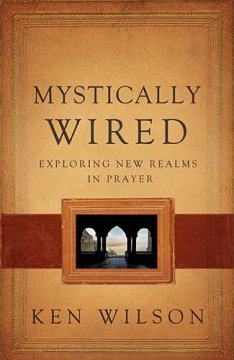 Mystically Wired: Exploring New Realms in Prayer Ken Wilson (Nelson) $17.99 I list this one first because I’ve been wanting to say more about it other than my brief announcement when we first got it in a few months back. Wilson is an amazing guy, a deep and thoughtful writer, rooted in broad evangelicalism of a charismatic sort; he is a pastor of the Vineyard Church in Ann Arbor. Yet, he is no stereotypical Pentecostal; he has written bracingly about the need to resist the Christian right, has powerfully critiqued establishment religion as we know it (see his splendid, provocative, and very well done Jesus Brand Spirituality: He Wants His Religion Back) In this handsome new hardback, Wilson spends some considerable time using his considerable interests in the sciences to describe what happens to the brain when people pray. Neurological research during religious practices, worship, meditation and the like has long been done by mainstream and secular clinicians. I don’t know, though, of any books so robustly Christian and so energetic about understanding the details of how to enter a state of prayerfulness by understanding the human “wiring” of the brain. This is such a fascinating work that we have to commend it. But it isn’t just me—Phyllis Tickle says (get this) “Hands down, this is the best book on prayer that I have ever read.” Folks, even if dear Phyllis is wrong by a long-shot, you may know she is one of the most widely Christian leaders alive. My friend York Moore—a passionate speaker and leader on evangelism—says “I was routinely blown away by the intuitive genius of Ken’s view and application of prayer. Page after page, thinking I knew what was next, I was surprised with fresh insight and unique perspectives on connecting with God.” Others have raved—folks as different as Todd Hunter, Scot McKnight, Brian McLaren. Please do check it out. I’m going to read it again, more slowly this time.
Mystically Wired: Exploring New Realms in Prayer Ken Wilson (Nelson) $17.99 I list this one first because I’ve been wanting to say more about it other than my brief announcement when we first got it in a few months back. Wilson is an amazing guy, a deep and thoughtful writer, rooted in broad evangelicalism of a charismatic sort; he is a pastor of the Vineyard Church in Ann Arbor. Yet, he is no stereotypical Pentecostal; he has written bracingly about the need to resist the Christian right, has powerfully critiqued establishment religion as we know it (see his splendid, provocative, and very well done Jesus Brand Spirituality: He Wants His Religion Back) In this handsome new hardback, Wilson spends some considerable time using his considerable interests in the sciences to describe what happens to the brain when people pray. Neurological research during religious practices, worship, meditation and the like has long been done by mainstream and secular clinicians. I don’t know, though, of any books so robustly Christian and so energetic about understanding the details of how to enter a state of prayerfulness by understanding the human “wiring” of the brain. This is such a fascinating work that we have to commend it. But it isn’t just me—Phyllis Tickle says (get this) “Hands down, this is the best book on prayer that I have ever read.” Folks, even if dear Phyllis is wrong by a long-shot, you may know she is one of the most widely Christian leaders alive. My friend York Moore—a passionate speaker and leader on evangelism—says “I was routinely blown away by the intuitive genius of Ken’s view and application of prayer. Page after page, thinking I knew what was next, I was surprised with fresh insight and unique perspectives on connecting with God.” Others have raved—folks as different as Todd Hunter, Scot McKnight, Brian McLaren. Please do check it out. I’m going to read it again, more slowly this time. 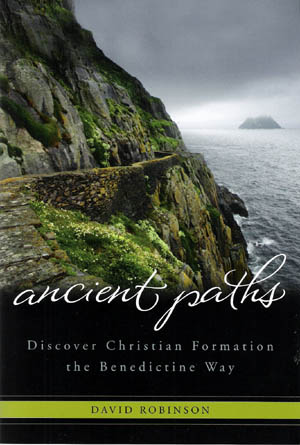 Ancient Paths: Discover Christian Formation the Benedictine Way David Robinson (Paraclete) $16.99 Yes, I know there are a hundred recent books drawing on Benedict. And I know I’ve promoted the beautifully simple recent work (The Good Life and The Good Neighbor both also published by Paraclete) by Robert Benson, by saying they were the best, clear, lovely, simple way into Benedictine spirituality. Well, this is level two—not exactly for true beginners, but it is the best serious introduction I’ve yet read. Man, this Presbyterian guy knows his stuff. The chapter on the ways in which the young monk from 5th century Nursia changed the world is worth the whole price of the volume, and it is exciting stuff. Faith well lived, deeply and in community, really does transform ideas and behaviors and can impact culture and history.
Ancient Paths: Discover Christian Formation the Benedictine Way David Robinson (Paraclete) $16.99 Yes, I know there are a hundred recent books drawing on Benedict. And I know I’ve promoted the beautifully simple recent work (The Good Life and The Good Neighbor both also published by Paraclete) by Robert Benson, by saying they were the best, clear, lovely, simple way into Benedictine spirituality. Well, this is level two—not exactly for true beginners, but it is the best serious introduction I’ve yet read. Man, this Presbyterian guy knows his stuff. The chapter on the ways in which the young monk from 5th century Nursia changed the world is worth the whole price of the volume, and it is exciting stuff. Faith well lived, deeply and in community, really does transform ideas and behaviors and can impact culture and history. 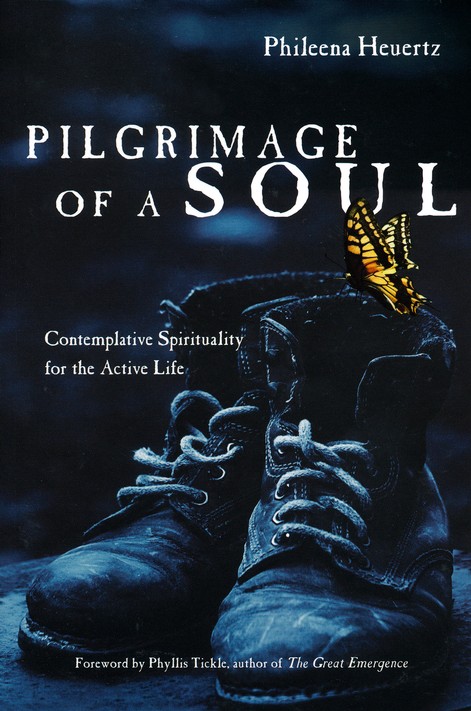 (Likewise/IVP) $15.00 Earlier this summer I got to do a small workshop on the Biblical basis for and the spirituality that helps fund, a life-long commitment to social justice. Some of the books that relate faith formation and justice work are near classics (like, say, The Active Life by Parker Palmer, drawing on the deeper <
i>Contemplation in a World of Action, by Thomas Merton.) One of my favorites, for its fun and practical style, is the gem by Tony Campolo and Mary Darling called The God of Intimacy & Action. This new one by Phileena Heuertz stands in the tradition of those books that struggle to bring together the “journey inward and journey outward” and it, too, may someday be considered a watershed and seminal offering.
(Likewise/IVP) $15.00 Earlier this summer I got to do a small workshop on the Biblical basis for and the spirituality that helps fund, a life-long commitment to social justice. Some of the books that relate faith formation and justice work are near classics (like, say, The Active Life by Parker Palmer, drawing on the deeper <
i>Contemplation in a World of Action, by Thomas Merton.) One of my favorites, for its fun and practical style, is the gem by Tony Campolo and Mary Darling called The God of Intimacy & Action. This new one by Phileena Heuertz stands in the tradition of those books that struggle to bring together the “journey inward and journey outward” and it, too, may someday be considered a watershed and seminal offering.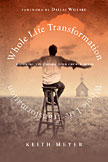 enter counseling, embrace the 12-step sort of recovery movement, and weave all of this into his daily work as an evangelical pastor. While the back cover says “transforming the church by transforming the pastor” I believe this book has wider application for anyone hungering for a saner pace of life, a deeper awareness of how our driven and competitive spirits can be dysfunctional (even when it is done as “church work”) and is eager to learn how to rearrange one’s habits. This is a book of honesty and straight-talk, and will appeal to those who know they are hurting, know the church is often broken, and want to truly become transformed by Christ to be like Christ. His friend and mentor Dallas Willard has written a good forward, and in many ways, this is a case study of what can do to heal an exhausted pastor, renew an earnest leader, and transform a community—bit by bit—as spiritual transformation became the heart of the ethos of the congregation. Do you long for God to redeem and reform your character? Your family? Your daily habits? Do you think that your own local church could benefit if some folks truly learned to name our sins and allow Christ to heal us? This is an easy-to-read book that will stimulate some good thinking and may be an avenue for the very transformation you or your church is seeking. More programs and bigger budgets are not the answer. Meyer came to learn that, nearly the hard way. Read his story and rejoice.
enter counseling, embrace the 12-step sort of recovery movement, and weave all of this into his daily work as an evangelical pastor. While the back cover says “transforming the church by transforming the pastor” I believe this book has wider application for anyone hungering for a saner pace of life, a deeper awareness of how our driven and competitive spirits can be dysfunctional (even when it is done as “church work”) and is eager to learn how to rearrange one’s habits. This is a book of honesty and straight-talk, and will appeal to those who know they are hurting, know the church is often broken, and want to truly become transformed by Christ to be like Christ. His friend and mentor Dallas Willard has written a good forward, and in many ways, this is a case study of what can do to heal an exhausted pastor, renew an earnest leader, and transform a community—bit by bit—as spiritual transformation became the heart of the ethos of the congregation. Do you long for God to redeem and reform your character? Your family? Your daily habits? Do you think that your own local church could benefit if some folks truly learned to name our sins and allow Christ to heal us? This is an easy-to-read book that will stimulate some good thinking and may be an avenue for the very transformation you or your church is seeking. More programs and bigger budgets are not the answer. Meyer came to learn that, nearly the hard way. Read his story and rejoice. that is enhanced and underscored and part and parcel of a truly spiritual life. Of course it is not pantheism to suggest that God shows up everywhere, that the creation is alive in pointing us to the Divine, and that Christ is truly in and around us. Anyone setting out to “change the world” that does not do so for God’s glory and in Christ’s ways will be doomed to burnout and trouble. I noted, in my comments above about the great new book by Phileena Heuertz, that it seems that Richard Rohr has influenced her a bit. You may know his very popular and important book on just these things, Everything Belongs: The Gift of Contemplative Prayer which, true to Rohr’s love of St. Francis, shows how prayer and service and action relate. I liked that book a lot and while not brand new, is a fairly recent contribution to the field of experiential spirituality being lived out with “radical grace” in the contemporary world. Fr. Rohr helps direct a Center about these very things, The Center for Action & Contemplation, which is one interesting place; it might stretch some conservative evangelicals, I’d guess, but it is worth visiting.
that is enhanced and underscored and part and parcel of a truly spiritual life. Of course it is not pantheism to suggest that God shows up everywhere, that the creation is alive in pointing us to the Divine, and that Christ is truly in and around us. Anyone setting out to “change the world” that does not do so for God’s glory and in Christ’s ways will be doomed to burnout and trouble. I noted, in my comments above about the great new book by Phileena Heuertz, that it seems that Richard Rohr has influenced her a bit. You may know his very popular and important book on just these things, Everything Belongs: The Gift of Contemplative Prayer which, true to Rohr’s love of St. Francis, shows how prayer and service and action relate. I liked that book a lot and while not brand new, is a fairly recent contribution to the field of experiential spirituality being lived out with “radical grace” in the contemporary world. Fr. Rohr helps direct a Center about these very things, The Center for Action & Contemplation, which is one interesting place; it might stretch some conservative evangelicals, I’d guess, but it is worth visiting.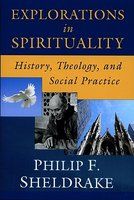 Explorations in Spirituality: History, Theology, and Social Practice Philip F. Sheldrake (Paulist Press) $22.95 Well, I’ve raised the hackles of some friends, I suppose, by offering a small bit of critique to brother Rohr, an author I generally like, and a leader I respect. Others surely think I’ve not hit him hard enough, and there will be websites glowing that Hearts & Minds has embraced paganism. So be it. Most of our customers and friends appreciate our attempt to be balanced, to share concerns in friendly ways, and to point you towards important books (where we, or you, agree with all of them or not.) But this does open a can of worms, doesn’t it? What do we mean by spirituality? How has that over-used phrase entered into our vocabulary so, when the grand traditions are so unknown. We stock books of medieval mystics and Greek and Russian spiritual masters, and yet they don’t sell much. So we need to know a bit more about this whole field.
Explorations in Spirituality: History, Theology, and Social Practice Philip F. Sheldrake (Paulist Press) $22.95 Well, I’ve raised the hackles of some friends, I suppose, by offering a small bit of critique to brother Rohr, an author I generally like, and a leader I respect. Others surely think I’ve not hit him hard enough, and there will be websites glowing that Hearts & Minds has embraced paganism. So be it. Most of our customers and friends appreciate our attempt to be balanced, to share concerns in friendly ways, and to point you towards important books (where we, or you, agree with all of them or not.) But this does open a can of worms, doesn’t it? What do we mean by spirituality? How has that over-used phrase entered into our vocabulary so, when the grand traditions are so unknown. We stock books of medieval mystics and Greek and Russian spiritual masters, and yet they don’t sell much. So we need to know a bit more about this whole field.  Life in the Spirit: Spiritual Formation in Theological Perspective Jeffrey Greenman & George Kalantzis (IVP) $25.00 For a semi-scholarly treatment of the field of spirituality, and how theological themes do or don’t interact with recent concerns in spiritual direction, this is the best resource we’ve yet seen. I cannot say enough about how thrilling it is to see a mature and open-minded and yet firmly evangelical theology interacting with things that are so common within those retreat centers and renewal ministries that are talking about spiritual disciplines and the inner journey. (There are chapters, for instance, like Bruce Hindmarsh comparing Catholic and evangelical devotional practices, Kelly Kapic on holiness in John Owen that is very interesting and apropos, a good piece by Dallas Willard, and chapters on centering prayer, hymns, and Chris Hall on “lectio devina”—what is really going on, there, and how might serious theological voices help?)
Life in the Spirit: Spiritual Formation in Theological Perspective Jeffrey Greenman & George Kalantzis (IVP) $25.00 For a semi-scholarly treatment of the field of spirituality, and how theological themes do or don’t interact with recent concerns in spiritual direction, this is the best resource we’ve yet seen. I cannot say enough about how thrilling it is to see a mature and open-minded and yet firmly evangelical theology interacting with things that are so common within those retreat centers and renewal ministries that are talking about spiritual disciplines and the inner journey. (There are chapters, for instance, like Bruce Hindmarsh comparing Catholic and evangelical devotional practices, Kelly Kapic on holiness in John Owen that is very interesting and apropos, a good piece by Dallas Willard, and chapters on centering prayer, hymns, and Chris Hall on “lectio devina”—what is really going on, there, and how might serious theological voices help?) 
